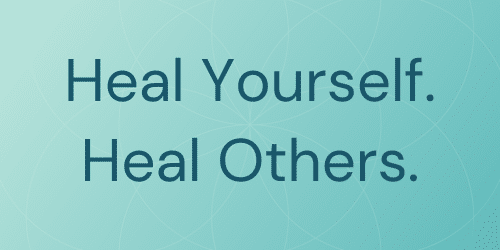“Holistic wellness isn’t about being perfect—it’s about staying connected to your body and making choices that support your health every day.”
What Is Holistic Wellness?
Holistic wellness means looking at health from every angle; physical, emotional, mental, and even spiritual. It’s a whole-body approach that recognizes how the different areas of your life are connected.
Rather than just treating symptoms, holistic wellness asks, “What’s really going on underneath?” This approach aims to uncover the root causes of imbalance and restore health through natural, sustainable methods.
More people are turning to this model because they’re tired of temporary fixes. They want to feel better long-term and holistic wellness makes that possible.

The Mind-Body Connection: How Emotions Affect Health
Your body responds to your thoughts and emotions more than you might think. When you feel stressed, anxious, or overwhelmed, it doesn’t just stay in your head, it can show up as fatigue, headaches, poor digestion, or low immunity.
FAQ: Can stress really affect physical health?
Yes. Chronic stress can impact your nervous system, disrupt your hormones, and weaken your immune defenses. That’s why managing mental and emotional well-being is a key part of any wellness lifestyle.
Holistic health honors this connection. It encourages practices that calm the mind and nourish the body so you feel better from the inside out. Listen to this episode of our podcast that explains how chronic stress can affect healing.
Building a Holistic Routine That Works for You

Living a holistic lifestyle doesn’t mean following rigid rules. It’s about creating daily rhythms that support your body, calm your mind, and help you feel your best naturally. The key is to choose actions that feel sustainable and aligned with your life.
Instead of doing everything at once, try focusing on one area at a time:
- Energy: Feeling sluggish? Start by improving your sleep environment. Cool room, no screens, and a consistent bedtime
- Digestion: Add more fiber-rich foods like leafy greens, berries, and flaxseed to support gut health
- Stress: Build in “pause moments” throughout the day which include a few deep breaths, a short walk, or time away from devices
- Mood: Try keeping a gratitude list or listening to calming music during transitions in your day
- Focus: Minimize multitasking and create small blocks of uninterrupted time to reset your mind
FAQ: How do I know which wellness habit to start with?
Start with the area of your life that feels most out of balance. Small, focused shifts in that space often create a ripple effect across your whole-body wellness.
Remember: holistic health isn’t about perfection, it’s about building habits that help you feel grounded, resilient, and supported in your daily life.
What Makes IHPI Different?
At the Integrative Health Practitioner Institute (IHPI), we teach a balanced, root-cause approach to healing that blends science and natural health. IHPI Health Coaching Certifications equip you with real-world tools to support both your own wellness and the well-being of others. Explore our certification curriculum.
FAQ: Do I need experience to become an Integrative Health Practitioner?
No experience is required. Many of our students are simply passionate about wellness, some want to heal themselves, others want to help family members, and many go on to build careers as health coaches.
Our curriculum combines principles from ayurvedic medicine, naturopathy, nutrition, detoxification, and lifestyle education. Everything is laid out in a step-by-step format, so you can learn with confidence whether you’re new to the health space or already working in it.
Why Root Cause Healing Works

Unlike symptom-based approaches, holistic wellness focuses on what’s causing the issue in the first place. For example, instead of using caffeine to power through fatigue, you might explore what’s draining your energy such as poor sleep, nutrient deficiencies, or hidden inflammation.
FAQ: How long does it take to see results with a holistic approach?
It varies by person, but many people feel noticeable improvements in energy, digestion, sleep, and mood within weeks. The key is consistency and finding the right strategies for your unique body.
Healing takes time but when you support the body in the right way, real change happens.
A Personal Path to Wellness
Holistic health is not one-size-fits-all. It’s a personal journey that invites you to get curious, listen to your body, and make choices that align with your goals and values. It’s not about being perfect, it’s about progress.
Whether you want to feel better, help others heal, or start a meaningful career in wellness, IHPI offers the knowledge, tools, and support to get you there.
Ready to Learn More?
At IHPI, we believe everyone has the power to take control of their health. Whether you're seeking personal healing or want to guide others as an IHP Certified Health Coach, we’re here to support your path.
Take the first step today.
Book a free call with our admissions team and learn how becoming an Integrative Health Practitioner can help you create a wellness lifestyle that lasts.
If you missed our last blog, check it out HERE and learn how IHP Chris Kassai reclaimed his metabolic health!










